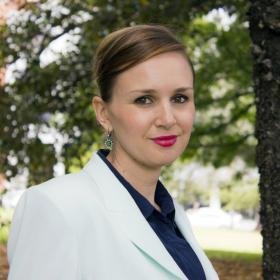Workplaces urged to take the lead in talking about suicide prevention
Media releaseWe spend a great deal of our adult lives at work, making the workplace a logical place to open up the conversation around suicide, according to a Deakin University suicide prevention expert.
With World Suicide Prevention Day taking place this Thursday (10 September), Dr Allison Milner, deputy director of Deakin’s Work, Health and Wellbeing Unit, is encouraging organisations to reach out to their employees and create a safe space to talk about suicide prevention.
“The vast majority of suicides occur in the working age population and many of those who die by suicide are employed at the time of their death. This presents a clear motivation for workplace suicide prevention activities, especially in high risk industries and occupations such as farmers, construction workers and the armed forces,” Dr Milner said.
There are a number of things employers can put in place to ensure their organisations are safe places for people to discuss, and seek help for, mental health issues.
“They need to start with taking a top down approach to creating an environment where staff feel comfortable to talk to each other about problems and ask for help. It’s also important that staff know where to direct colleagues who need help,” Dr Milner said.
“On a broader level it is essential for workplaces to be places where people want to be.
“We spend a good deal of our time at work and for many it is where we develop our sense of self, accomplishment and meaning in life. So it is important for employers to address the things in their workplaces that can make work stressful.
“This can include providing staff with levels of control and decision making over their work, reducing monotonous tasks and psychological demands and addressing job security. It’s also important to capitalise on the social networks within workplaces. Friends at work are people we see every day. In many situations, colleagues can recognise when a person is going through a rough time and provide guidance in connecting them to help.”
Dr Milner’s research has revealed other key elements in successful workplace suicide prevention programs. These include:
- the importance of having a multi-faceted, comprehensive and community-based approach that operates at a universal level while also ensuring those at risk are able to be identified and provided with treatment in a timely manner;
- having all levels of an organisation on board and involved;
- ongoing monitoring to ensure programs are responsive to changes in the work environment.
Mates in Construction is one program that provides lessons for other organisations in how to run a successful workplace suicide prevention program.
The program was established in Queensland in 2008 by the Building Employees Redundancy Trust to turnaround the high suicide rates in the construction industry – it is estimated that construction workers are more than twice as likely to suicide than other people in Australia and are six times more likely to die by suicide than through a workplace accident.
An evaluation of the program over a five-year period indicated that it had a significant impact on reducing suicide rates among construction workers.
“A key factor in the success of the program was it had complete industry support, from the union, to the employers and employees,” Dr Milner explained.
“It was also contextually developed and addressed the specific needs of construction workers. And it was not a one off program. It is a long-term commitment that involves follow up with employees and systematic reframing as the industry evolves.”
The Mates in Construction program also worked on changing the stigma around suicide.
“Despite suicide touching the lives of an incredible amount of people, whether it be someone close to them who has taken their lives or they have had suicidal thoughts themselves, talking about suicide remains a taboo area to discuss,” Dr Milner said.
“Workplaces can be valuable sites for breaking down the stigma of suicide, for the current and future generations of workers.”
---
Dr Allison Milner is an Alfred Deakin Postdoctoral Research Fellow and deputy director of the Work, Health and Wellbeing Unit in Deakin’s Population Health Strategic Research Centre. She has conducted a wide range of research projects in the areas of work place mental health and wellbeing and suicide prevention. Dr Milner is also the National Academic Director for Mates in Construction.
More information on Mates in Construction.
Other resources for workplace suicide prevention:
- Workplace suicide prevention position statement from Suicide Prevention Australia
- World health organisation guidelines on workplace suicide prevention
If you need support or know someone else who does, contact:
Share this story
 Dr Allison Milner
Dr Allison Milner
